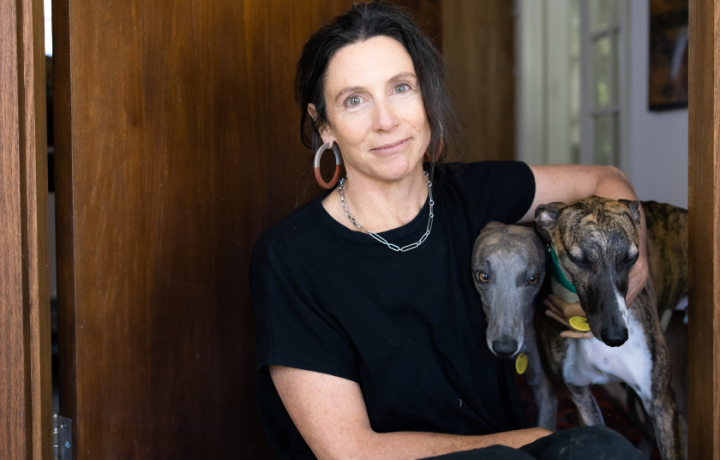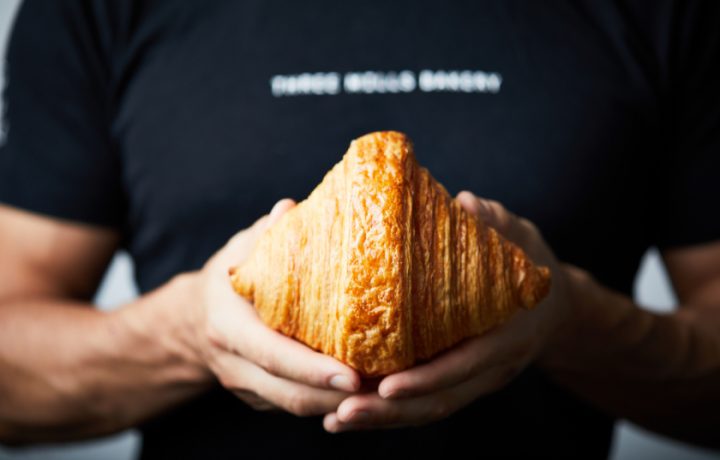Five minutes with author Sonia Orchard

Posted on
Content warning: Sexual assault and abuse.
Sonia Orchard was in her forties when she told a therapist about the boyfriend she had when she was fifteen – a man a decade older than herself. Someone she referred to as her first boyfriend and a relationship she thought was consensual. To her surprise, Sonia broke down in tears, then began to shake uncontrollably – an unmistakable expression of trauma that lasted for days. Clearly not okay, she then begins to unpack the reality of this relationship she’d thought was loving really having been abused. Groomed is the story of her fight for justice.

Your realisation about your abuse took you by surprise — tell us a little about that and what that felt like.
The realisation I’d been abused completely blindsided me. It was only after researching trauma, and how survivors commonly ‘rewrite’ abuse in their minds – in order to endure it at the time, and then ‘forget’ traumatic experiences and turn the experience into a narrative they can live with – that I fully understood how this had all happened, so I describe that in the book. It’s still something that really intrigues and baffles me though. I have an intellectual understanding of what happened to me, and my body knows that there is trauma there, but my ‘remembered’ narrative still often sticks to the “I’m fine, it was all fine” script. I find it fascinating that our brains do this – protect us from the unbearable – it’s remarkably clever! Unfortunately, however, it’s often too clever for those in the justice system, and those working with victims of abuse.
While it was incredibly brave to go through pursuing this legally, it’s also brave to write about. Did writing about it provide some level of catharsis or was it akin to what many survivors say about legal proceedings — that they are traumatising?
Writing about it wasn’t retraumatising at all. It was the easiest thing I’ve ever written. One of the traumatising elements of being a victim of abuse and a victim of the justice system is the removal of agency, the feeling that you have no power, and no control. The act of writing is the opposite of that – you are no longer a passive or vulnerable player in someone else’s narrative; you are now the one writing the narrative. You’re the protagonist and you’re in charge. Writing felt great. Showing it to others, and deciding to publish, however, were both terrifying…
Were you surprised about the reaction that people had to your bringing up a historical sexual abuse case?
Yes, but I learned to be less and less surprised and told myself that their reaction often said more about them, than anything to do with me. Depending on where I was at, I would go through stages of not telling anyone, or conversely telling everyone – because I did find it draining having to manage the reactions of others. Some people would say “That’s brilliant! You champion, I’m right behind you!” and that would really recharge me. When people questioned what I was doing, asked me to consider what it was like for my abuser, reminded me how long ago it was – that was hard. But I’m also grateful for this questioning as it forced me to really dig down into what I did feel about all these things, and why people – myself included – hung onto this need to protect perpetrators from accountability. Ideas such as that women ‘cry rape’, make these stories up, and that we should just ‘leave the poor guy alone’ are common rape culture myths that I wanted to address in my book, so I needed to engage in conversations with people who thought like this in order to better understand where this thinking came from.
Do you think times have changed in how society views underage relationships?
Hmmm – we’re improving, but I’m still shocked by how many people still consider teenagers – and we’re talking about children here – capable of consenting to relationships with adults, where there is a massive power imbalance. The increased awareness nowadays around consent is fantastic, but people really need to learn about power also, as a more powerful person can really manipulate a vulnerable person in invisible ways, they can groom a vulnerable person into ‘accepting’ abuse. This can happen at any age, but children and teens are particularly vulnerable, hence why they need to be protected.
Justice is a thorny issue when it comes to sexual abuse or assault. How did you envisage justice at the outset? What could justice look like for survivors?
Great question – it’s a question I asked myself throughout the process and throughout the writing of the book, and I still don’t have a clear answer. It’s important to acknowledge that nothing will ever adequately compensate a victim for this kind of abuse, because when a child is abused, something is taken away from them, and there is no justice system that can repair that loss, or compensate a person for what’s been stolen from them. I stopped trying to think in terms of ‘justice’, because I just couldn’t come up with an answer of what justice could look like for me. I had to shift my focus to my own healing – what would help me – and I think that’s actually what a lot of survivors really want when they say they want justice. They just want an opportunity to heal. And this will differ between individuals: some will heal best if they see their perpetrator behind bars, some will heal best if they get a public acknowledgment of guilt from their perpetrator or a guilty verdict from a jury, some just want a chance to tell their story (in front of a judge and jury), some want concrete compensation, some want their perpetrator to understand what they did and show remorse, some will heal by helping or protecting others. It really will vary from person to person. But I do think it’s important that the justice system starts to acknowledge that the ‘ability to heal’ is vital for victims, and needs to be a part of the ‘justice’ equation. So the fact that the justice system often compounds the existing trauma is extremely problematic.
You have a parallel story of care and healing from a health scare. How different were the experiences of the healthcare system and the legal system?
It was really interesting travelling through these two institutions concurrently – both of which are traditionally very patriarchal and hierarchical. I think we’ve seen a massive shift in the way doctors care for patients in the last decade – the medical fraternity seems to have realised that focusing exclusively on a disease, without focusing on the actual patient, is detrimental to recovery and wellness: patients will heal better when they have understanding and agency, and when they feel they’re being listened to and cared for. It seems to now be better understood that empathy doesn’t undermine good medicine; it is good medicine. The legal system needs to do likewise: drag itself out of the last century and remember that the law is of and for the people. It’s meant to reflect society’s values, which I don’t believe it does when it comes to these crimes. Sex crimes – like all crimes – are considered a crime against the state, not a crime against a person. This is problematic for many reasons, one of them being that for the victim/complainant, the damage done to them and the state of trauma they are in is not really taken into consideration. Victims are merely ‘the scene of the crime’ – they are a pieces of evidence to be dissected by both sides, but particularly by the defense.
A traumatised victim needs to be put in an environment that will enable healing, not exacerbate trauma, which is what the justice system currently does. This discourages victims from coming forward, which means these serious violent crimes do not end up being policed, which is obviously a serious problem for all. An equivalency in the healthcare system would be very sick people refusing medical care, which we all know would lead to a much sicker society.
Do you have any recommended reading/listening/viewing around these topics?
Everything by Gabor Maté! And I loved his book with Gordon Neufeld Hold Onto Your Kids. Also Waking the Tiger by Peter Levine and The Body Keeps the Score by Bessel van der Kolk. I also found reading other survivor stories really helpful in making me feel bonded to a community of brave, inspiring people.
What’s on your TBR?
I’m way behind in my reading-purely-for-pleasure, but I’ve just started Anna Funder’s Wifedom, which I’m loving. I’m also keen to start Dirrayawadha by Anita Heiss. For non-fiction, The Knowledge Gene by Lynne Kelly and The Dawn of Everything by David Graeber and David Wengrow.
Groomed is out now, via Affirm Press. Find out more about Sonia and the book on Instagram.
Feature image: Jessica Tremp-Brown. Paper Parcel.

